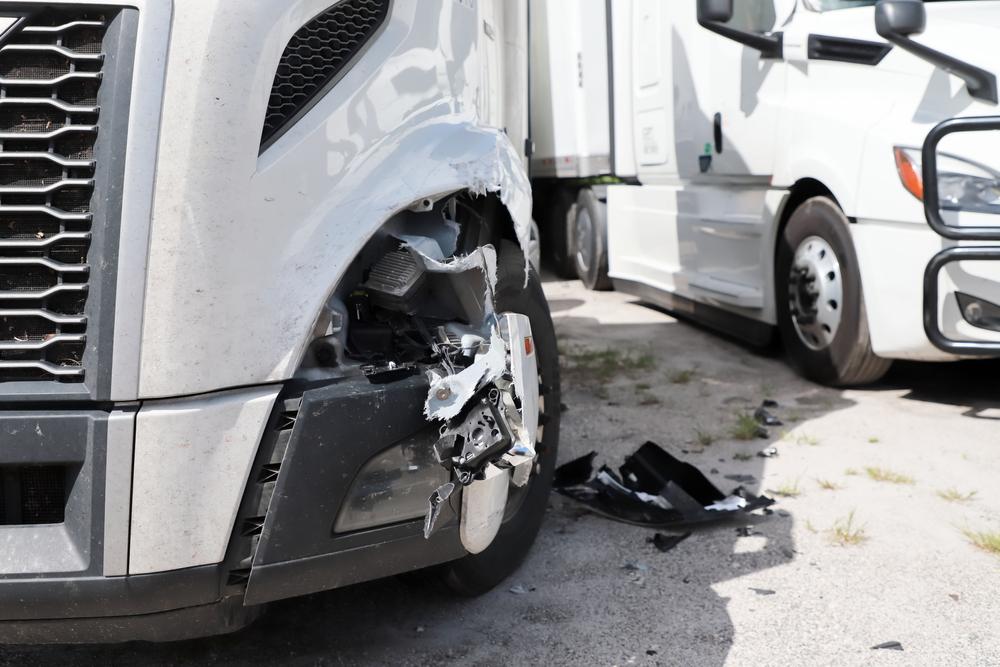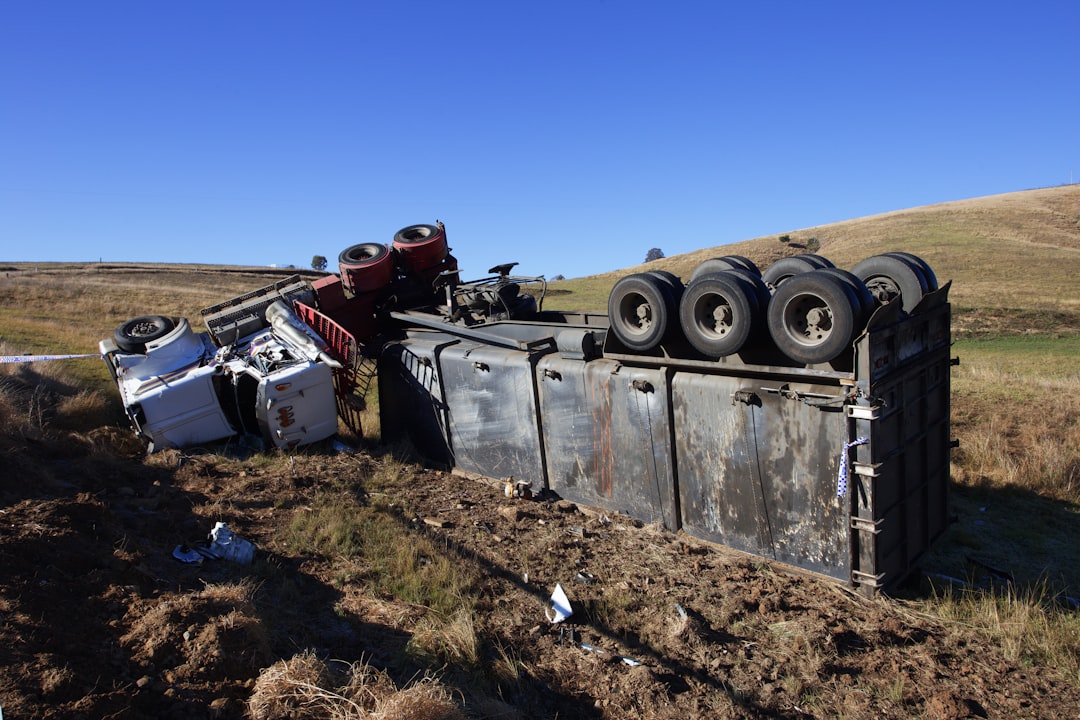Legal Responsibilities of Trucking Companies
Title: Legal Responsibilities of Trucking Companies: Navigating Liability
Trucking companies play a crucial role in the economy, ensuring that goods are transported efficiently across vast distances. However, with great responsibility comes great accountability. The legal responsibilities of trucking companies are an intricate web designed to ensure safety, fairness, and reliability in the transportation industry. Understanding these responsibilities is essential for both the companies themselves and the general public who rely on their services.
At the heart of trucking company liability is the duty to maintain safe operations. This begins with compliance with federal and state regulations that govern vehicle maintenance, driver qualifications, and operational protocols. The Federal Motor Carrier Safety Administration (FMCSA) sets forth stringent guidelines that trucking companies must adhere to, covering everything from maximum driving hours to regular vehicle inspections. Failure to comply with these regulations can lead to severe penalties and increased liability in the event of an accident.
One significant aspect of legal responsibility involves hiring qualified drivers. Trucking companies must conduct thorough background checks and ensure proper training for all drivers. This includes verifying commercial driver's licenses (CDLs), assessing driving records, and providing ongoing education on safety practices. Negligence in this area can result in claims of negligent hiring if a poorly trained or reckless driver causes an accident.
Liability also extends to cargo handling practices. Trucking companies must ensure that goods are loaded securely and do not exceed weight limits specified by law. Improperly loaded cargo can shift during transit, leading to serious accidents on the road. In such cases, both truck drivers and their employers may be held liable for damages resulting from negligence.
Moreover, trucking companies have a responsibility towards other road users by maintaining insurance coverage that meets or exceeds federal minimum requirements. Adequate insurance protects against financial losses arising from accidents or damages caused by their fleet operations.
In addition to regulatory compliance and operational oversight, fostering a culture of safety within the organization is pivotal for mitigating liability risks. Trucking companies should prioritize safety training programs, encourage reporting of unsafe conditions without fear of retribution, and invest in technologies like GPS tracking systems or dashcams that enhance operational transparency.
When incidents occur despite best efforts at prevention-be it due to human error or unavoidable circumstances-trucking companies need robust procedures for responding promptly and effectively while cooperating fully with investigations conducted by relevant authorities.
In conclusion, navigating legal responsibilities requires trucking companies not only meet statutory obligations but proactively engage in cultivating safe environments both inside vehicles they operate as well as throughout wider communities they serve daily traversing roads nationwide transporting vital commodities sustaining modern life itself interconnected global supply chains depend upon every day without fail nor falter under ever-watchful public scrutiny demanding accountability transparency diligence above reproach always unwavering commitment excellence integrity forefront actions decisions alike unyielding pursuit minimizing risk maximizing benefit everyone involved stakeholders included customers clients employees partners society larger whole ultimately benefiting collective good welfare prosperity enduring legacy long into future generations yet come arise flourish thrive together united shared purpose vision harmony progress peace security sustainability justice equitable fair treatment all manner endeavor endeavor undertaken initiated embarked upon journey forward brighter horizons beckon call us onward upward steadfast resolve determination courage strength character honor truth dignity respect compassion empathy understanding humanity heart soul mission why exist first place core essence being doing achieving accomplishing goals objectives aspirations dreams realized fulfilled attained new heights unimaginable before now achievable possible reality today tomorrow beyond infinitely so limitless potential awaits discovery exploration wonder curiosity imagination innovation creativity ingenuity inspiration drive ambition passion zeal enthusiasm spirit hope optimism faith belief trust reliance confidence promise assurance certainty destiny true calling fulfilled embraced wholeheartedly fully completely utterly comprehensively holistically integratively synergistically sym
Common Causes of Trucking Accidents
Trucking accidents are a significant concern on roadways, often resulting in serious injuries, fatalities, and substantial property damage. Understanding the common causes of these accidents is crucial for addressing the broader issue of trucking company liability. By examining the key factors that contribute to trucking accidents, we can better assess where responsibility lies and how improvements can be made to prevent future incidents.
One of the primary causes of trucking accidents is driver fatigue. Truck drivers often face grueling schedules and tight deadlines, leading them to spend extended hours behind the wheel without adequate rest. Despite regulations set by authorities such as the Federal Motor Carrier Safety Administration (FMCSA), which mandates specific rest periods for drivers, pressure from trucking companies to meet delivery deadlines can result in these rules being overlooked or violated. Fatigue impairs a driver's reaction time and decision-making abilities, significantly increasing the likelihood of an accident.
Another significant factor contributing to trucking accidents is improper maintenance of vehicles. Trucks require regular inspections and maintenance to ensure they are safe for operation. However, some trucking companies may neglect this aspect due to cost-cutting measures or oversight. Faulty brakes, worn-out tires, or malfunctioning lights are just a few examples of maintenance issues that can lead directly to accidents. When such negligence occurs, it raises questions about the company's liability in ensuring their fleet's safety standards.
Overloading or improperly loading cargo is another frequent cause of trucking accidents. An overloaded truck can affect handling and braking capabilities, making it more difficult for drivers to control their vehicles under normal driving conditions or during emergencies. Similarly, if cargo is not secured properly within the trailer, it can shift during transit, leading to loss of control or rollover incidents. In such cases, both the driver and their employer may be held accountable for failing to adhere to safe loading practices.
Distracted driving also plays a role in many trucking accidents. With long hours on monotonous highways, truck drivers might turn to their phones or other devices for entertainment or communication purposes-a dangerous distraction when operating large vehicles at high speeds. While individual drivers bear responsibility for their actions behind the wheel, companies must enforce strict policies against distracted driving and provide adequate training on its dangers.
Lastly, inadequate training and hiring practices contribute significantly to trucking accidents. The demand for qualified truck drivers sometimes leads companies to accelerate training programs or hire individuals without sufficient experience in handling large commercial vehicles safely. This lack of proper training increases the risk of mishaps on the road.
In conclusion, while various factors contribute individually or collectively to trucking accidents-such as driver fatigue, poor vehicle maintenance, improper loading practices, distracted driving, and inadequate training-the overarching theme remains clear: trucking companies hold substantial responsibility in mitigating these risks through stringent adherence to safety protocols and regulations. Ensuring that trucks are well-maintained; enforcing reasonable work hours; providing thorough employee training; implementing strong anti-distracted driving policies; and following best practices in cargo loading are critical steps toward reducing accident rates and enhancing overall road safety. Addressing these issues not only protects those who share our roads but also shields companies from potential liabilities arising from negligence-related incidents.
Determining Liability in Trucking Accidents
Determining liability in trucking accidents is a complex process that involves an intricate web of legal, regulatory, and factual considerations. Trucking accidents often result in severe consequences due to the sheer size and weight of commercial trucks, making the accurate assignment of liability critical for ensuring justice and safety.
The first step in determining liability is identifying all potential parties involved. Unlike typical automobile accidents which usually involve two parties-the drivers-trucking accidents may include multiple entities such as the truck driver, the trucking company, the vehicle manufacturer, or even third-party maintenance contractors. Each entity has specific responsibilities under federal and state regulations that could influence their liability in an accident.
Trucking companies are perhaps one of the most scrutinized entities when it comes to liability. Under federal law, particularly regulations enforced by the Federal Motor Carrier Safety Administration (FMCSA), trucking companies must adhere to strict safety protocols. These include maintaining their fleet in good condition, ensuring drivers are properly trained and licensed, and complying with hours-of-service regulations that prevent driver fatigue. Failure to comply with any of these requirements can establish grounds for negligence on part of the trucking company.
Moreover, vicarious liability principles can hold trucking companies responsible for their employees' actions within the scope of employment. If a truck driver causes an accident while performing job-related duties, the company could be held liable even if it was not directly at fault for causing the accident. This responsibility underscores the importance for companies to vet drivers thoroughly and continuously monitor their performance.
In addition to direct negligence or vicarious liability claims against trucking companies, plaintiffs may also explore theories such as negligent hiring or supervision if evidence suggests that a company failed to adequately assess a driver's qualifications or ignored unsafe behaviors.
Investigating a trucking accident requires meticulous attention to detail and often involves reconstructing events leading up to the incident through analysis of electronic logging devices (ELDs), GPS data, and surveillance footage. Furthermore, expert testimony from accident reconstruction specialists can provide valuable insights into factors like speed, braking patterns, and vehicle load distribution at the time of collision.
In conclusion, determining liability in trucking accidents demands thorough investigation and comprehensive understanding of legal doctrines related to employer responsibility. While truck drivers might be directly involved in many incidents, examining broader systemic issues within trucking operations is crucial for assigning appropriate accountability. By doing so, not only can victims receive just compensation but also systemic changes can be implemented to enhance road safety overall.
Role of Insurance in Covering Liabilities
In the complex and ever-evolving world of transportation, trucking companies play a pivotal role in sustaining the global supply chain. However, with this significant responsibility comes an array of potential liabilities that these companies must manage effectively to ensure their continued operation and success. One of the most crucial tools at their disposal for safeguarding against these liabilities is insurance. The role of insurance in covering liabilities for trucking companies cannot be overstated, as it provides financial protection, risk management solutions, and peace of mind.
Trucking companies face numerous risks on a daily basis due to the very nature of their operations. These risks include accidents resulting in bodily injury or property damage, cargo theft or loss, environmental incidents such as hazardous material spills, and employee-related claims like workers' compensation. Each of these potential issues carries substantial financial implications that could cripple a company without proper coverage. Insurance acts as a safety net by mitigating these financial burdens and allowing companies to focus on their core operations without the constant fear of debilitating lawsuits or claims.
One primary aspect where insurance is indispensable is in covering liability arising from road accidents. Given the sheer size and weight of trucks compared to regular vehicles, accidents involving trucks can lead to severe damages and injuries. Liability insurance ensures that if an accident occurs that is deemed the fault of the truck driver or company, there are funds available to cover legal fees, medical expenses for injured parties, and compensation for property damage. Without such coverage, even a single major accident could result in overwhelming costs that might threaten the survival of a business.
Moreover, trucking companies often transport valuable goods across vast distances. Cargo insurance is another essential type of coverage that protects against losses related to stolen or damaged freight during transit. This form of insurance not only covers direct financial losses but also helps maintain trust with clients by guaranteeing compensation should any mishaps occur with their shipments.
Insurance also plays a vital role in managing long-term operational risks associated with employee welfare. Truck drivers operate under demanding conditions which can lead to health issues or work-related injuries over time. Workers' compensation insurance ensures employees receive necessary medical treatment and wage replacement benefits while protecting employers from costly lawsuits stemming from workplace injuries.
Beyond providing direct financial relief after incidents occur, having comprehensive insurance policies helps trucking companies cultivate better risk management practices overall. Insurers often offer resources such as training programs focused on safety compliance or consultations on best practices for risk reduction strategies - both aimed at reducing incident rates over time.
The peace-of-mind factor provided by adequate insurance coverage cannot be underestimated either; knowing there's robust support ready should unforeseen events arise allows businesses within this volatile industry some level stability amidst uncertainty around every corner they turn down America's highways.
In conclusion,the importance placed upon obtaining reliable comprehensive set insurances covering all aspects potential liabilities faced throughout daily operations crucial ensuring sustained growth prosperity amidst competitive landscape transportation sector today tomorrow alike As challenges continue evolve so too must approaches towards handling them effectively through means securing appropriate protections offered via trusted insurers committed helping navigate complexities modern-day logistics environment confidently safely securely all times
Impact of Federal and State Regulations
The trucking industry is a vital component of the American economy, responsible for transporting goods across vast distances and ensuring that supply chains operate smoothly. However, with this essential role comes significant responsibility, particularly concerning safety and accountability. Federal and state regulations play a crucial role in shaping the landscape of trucking company liability, aiming to protect both the public and the environment while fostering fair business practices.
At the federal level, the Federal Motor Carrier Safety Administration (FMCSA) is primarily responsible for regulating interstate trucking operations. The FMCSA enforces a wide array of rules designed to enhance road safety and minimize accidents involving large commercial vehicles. Key among these are the Hours of Service (HOS) regulations, which limit the number of hours drivers can operate their trucks without rest. These rules are intended to combat driver fatigue, a leading cause of trucking accidents. By mandating rest periods and restricting drive times, these regulations help ensure that truckers remain alert and capable behind the wheel.
Additionally, federal regulations require trucking companies to maintain rigorous vehicle maintenance standards. Regular inspections are mandated to prevent mechanical failures that could lead to catastrophic incidents on highways. Companies that fail to adhere to these standards face stiff penalties and increased liability in the event of an accident.
State governments also have a significant impact on trucking company liability through their own set of regulations. While states generally align their laws with federal guidelines, they often impose additional requirements tailored to local concerns or conditions. For example, some states may enforce stricter emissions standards or specific load restrictions based on regional infrastructure capabilities.
State-level enforcement can vary widely across jurisdictions, creating a patchwork regulatory landscape that trucking companies must navigate carefully. This variability can affect how liability is determined in case of accidents or regulatory violations. In some instances, state laws may impose harsher penalties or offer greater protections for victims involved in accidents with commercial trucks.
Moreover, both federal and state regulations mandate adequate insurance coverage for trucking companies to ensure compensation is available for damages resulting from accidents. As such, compliance with these insurance requirements is another facet where regulatory frameworks influence liability outcomes.
In conclusion, federal and state regulations profoundly impact trucking company liability by establishing safety protocols aimed at reducing accidents and ensuring accountability when incidents occur. While these rules sometimes present challenges due to their complexity and variability across states, they ultimately serve as critical safeguards protecting public welfare on America's roads. Trucking companies must remain vigilant in maintaining compliance with both sets of regulations to mitigate risks effectively and uphold their responsibilities within this indispensable industry.
Steps for Victims to Pursue Compensation
When a trucking accident occurs, the aftermath can be devastating for victims and their families. Beyond the physical injuries and emotional trauma, there often lies a complex web of legal challenges that must be navigated in order to pursue rightful compensation. Understanding the steps involved in seeking justice against trucking companies can empower victims to take action and secure the compensation they deserve.
First and foremost, it is crucial for victims to seek immediate medical attention following a trucking accident. This not only ensures their health and well-being but also serves as critical documentation for any legal proceedings. Medical records provide tangible evidence of injuries sustained, which are paramount in establishing the extent of harm when pursuing claims.
Once health concerns are addressed, victims should consider consulting with an attorney who specializes in personal injury or trucking accident cases. These professionals possess the expertise needed to navigate the complexities of trucking company liability and can offer invaluable guidance on how best to proceed. An experienced attorney will help gather evidence, negotiate with insurance companies, and advocate on behalf of the victim throughout the legal process.
Gathering evidence is a pivotal step in building a strong case against a trucking company. This involves collecting police reports, eyewitness testimonies, photographs from the scene of the accident, and any available video footage. Additionally, it may be necessary to obtain records from the trucking company itself, such as driver logs or maintenance records, which could reveal negligence or violations of safety regulations.
Understanding liability is another essential aspect of these cases. Trucking accidents often involve multiple parties who may bear responsibility for what occurred-ranging from truck drivers to vehicle manufacturers or even logistics companies responsible for loading cargo improperly. Identifying all liable parties ensures that victims can pursue compensation from every possible source.
As negotiations with insurance companies begin, having comprehensive documentation becomes invaluable. Insurance adjusters typically aim to minimize payouts; thus presenting clear evidence backed by expert testimony can significantly strengthen a victim's position during settlement discussions.
In some instances where settlements cannot be reached through negotiation alone, litigation might become necessary. Taking a case to court requires thorough preparation and representation by skilled attorneys who understand both federal regulations governing commercial vehicles as well as state laws applicable within their jurisdiction.
Throughout this entire process-whether negotiating settlements or proceeding with litigation-it remains important for victims not only focus on financial compensation but also consider broader implications such as changes needed within industry practices that could prevent future accidents.
Ultimately though daunting at times-the pursuit of compensation following a trucking accident represents more than just monetary recovery; it symbolizes accountability holding those responsible accountable while providing closure healing opportunity rebuild lives disrupted tragedy strikes unexpected ways roads travel daily basis across country around world alike ensuring safer environment everyone involved moving forward together united purpose common good above individual interests alone true justice achieved fullest extent possible given circumstances surrounding each unique situation arises inevitably midst chaos uncertainty inherent nature life itself yet hope endures courageously persistently unwaveringly always light shining darkness guiding path towards better tomorrow await us all if choose embrace journey collectively forge ahead bravely confidently knowing we're capable overcoming obstacles thrown way determined succeed despite odds stacked high initially seemingly insurmountable ultimately triumphantly emerge victorious resilient stronger ever before ready face whatever challenges lie ahead next chapter unfolds story continues onward upward boundless potential limitless possibilities await discovery exploration adventure beckons call answer resoundingly affirmatively saying yes life abundantly lived fullest measure imaginable achievable dreamt envisioned realized reality today tomorrow forevermore eternity beyond comprehension grasped fully understood comprehended entirety entirety entirety eternity timelessness infinite universe transcending boundaries limitations imposed upon ourselves others society culture norms expectations dictated external forces internal motivations desires aspirations driving force behind





